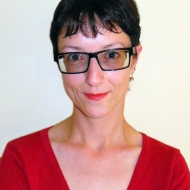
Be wary of mental health advice on social media

By Kudakwashe Mushayavanhu.
In the internet age, there is already a plethora of junk floating on social media masquerading as qualified mental health information. With the mental health month well in overdrive, the majority of the staff l am engaging on social media with, a grain of salt.
On a global scale, social media is a powerful tool that has impacted how we gather information, share ideas and reach out to each other across virtual networks. We have become accustomed to getting information by scrolling on Instagram, Twitter, googling, or maybe all three, but like everything else online, discernment is necessary. It’s undisputed that social media is a major source of information for those willing to find out more about their well-being—but everyone needs to be aware that there is a huge amount of dubious health news out there.
Fake information tends to outperform real information. Generally, lies spread more quickly than the truth. As Winston Churchill said, a lie gets halfway around the world before the truth puts on its boots. Even though you can get lots of good information on social media, there is still a potential for there to be disinformation depending on who you follow.
Therapy and mental health are rarely discussed in our communities, because of deeply ingrained stigmas surrounding them. Issues regarding mental health persist locally, judging from the suicide rates, yet the concept of resilience supersedes the need for help. And because real-world mental health care can be expensive and stigmatized, a lot of people end up turning to social media to figure out how to manage difficult thoughts. However, it does have downsides.
The major problem with the mental health information found on social media is that it tends to focus on the worst-case scenario. This is because, as humans, we tend to lean into confirmation bias and focus on information that already confirms our thoughts and feelings. This confirmation bias is a natural psychological phenomenon and one we are all prone to because it is much easier for our brains to confirm what we already know than it is to learn and process new information whilst letting go of the old. This causes us to believe the worst-case scenario.
As with the internet overall, you’ve got to be somewhat discriminating in terms of who puts that advice up. Some influencers misrepresent their qualifications. The good news about the internet age is that almost everyone has a digital footprint. If it’s a medically licensed professional — or someone who’s claiming to be one—do a quick search for what organization they are affiliated with and see what their background is, what their field of specialisation is, and any other official information on their experience. Licensed social workers, nurses, and doctors are more likely to share authentic health information.
When you see a claim online, it’s always encouraged to research the claim more carefully. If what you are consuming on social media is reputable, then chances are that it will appear in reputable publications. It will likely be addressed in medical publications that are geared toward providing unbiased clinical information. If the sources you are consuming are reputable you should see them in mainstream publications that have a large volume.
In as much as social media is useful and important when it comes to awareness, there is also an epidemic of misinformation and myths to be wary of. It’s important to realise that whatever health-related info you come across online, will never know your specific case. Medical Information sourced from social media should never substitute seeing qualified healthcare professionals.










































